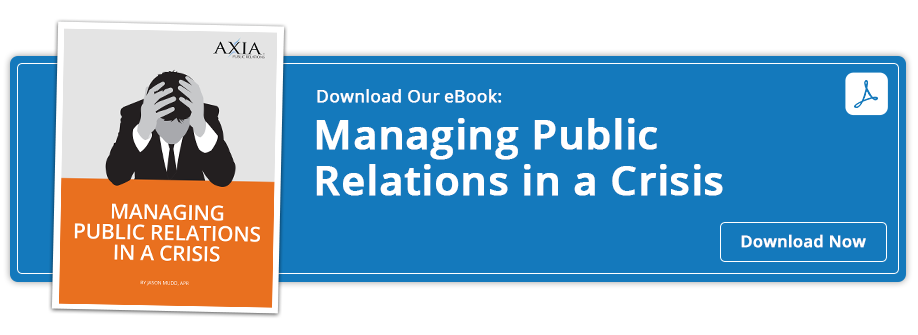Should my organization take a stand on the Israel-Hamas war?
By W. Patrick McSweeneyNovember 1, 2023
 Hamas’s Oct. 7 attacks on Israel demonstrate organizations’ difficulty responding to even heinous terrorist attacks. Most people agree opposing terrorism is the logical and right thing to do. Taking a stand against any sort of violence publicly or internally with employees would then seem to be the next step, right?
Hamas’s Oct. 7 attacks on Israel demonstrate organizations’ difficulty responding to even heinous terrorist attacks. Most people agree opposing terrorism is the logical and right thing to do. Taking a stand against any sort of violence publicly or internally with employees would then seem to be the next step, right?
Some companies, organizations, and individuals are finding out that quick response is fraught with danger.
Audio: Listen to this article.
- A local public relations chapter had to apologize for an email sent to its members because the subject line stated the group “supports Israel.”
- The European Union, which considers Hamas a terrorist outfit, was swift to condemn the attack and strongly supported Israel's right to self-defense, adding that any retaliation had to be proportionate and in respect of international humanitarian law. But comments made by EU President Ursula von der Leyen last year regarding Russia cutting off water, electricity, and heat to Ukrainian civilians are being called into question given Israel’s response in Gaza.
- Harvard and other universities have struggled to respond clearly. A statement issued by Harvard’s administration reads as if a committee wrote it and came after a coalition of student groups published a letter blaming Israel for the terrorist attacks.
The situation in Israel demonstrates how commenting on volatile political situations and other controversies must be well-researched and well-reasoned. Use this crisis communications framework to understand:
- Why you’re communicating (and that choosing not to comment also sends a message).
- Who you’re speaking with (employees, customers, vendors, business partners, investors, the local community, etc.).
- Who is in the room making decisions and crafting any statement –– and who isn’t. Representation matters. Having diverse voices and viewpoints can help identify blind spots that can ensnare your organization despite good intentions.
- What other (unintended) audiences might receive your message (Presume any internal communication will be shared outside of the organization.).
- What the intended result of communicating is (supporting employees, supporting a cause or community, demonstrating solidarity or a contrary viewpoint).
- How this reflects on your organization’s culture, leadership, and reputation.
If you make a statement, use clear, unmistakable language, provide a sound defense of your reasoning, and expect that not everyone will agree with you (and that’s okay).
Two companies chose to communicate their focus on employees:
- Law firm Davis Polk rescinded job offers to three law school students who it believed were part of the open letter blaming Israel for the Hamas attack. In an email to employees, the firm said the students’ statements are contrary to the firm’s values and it has a responsibility to provide a safe and inclusive work environment.
- International consulting firm Abt Associates is bringing psychologists and counselors to its offices to facilitate closed-group discussions based on faith and identity (i.e., sessions for Jewish employees, Muslim employees, etc.). Employees recognize they are in a safe space to work through their emotions.
If your organization is considering commenting on current events or social issues and you don’t know where to start, contact us today.
Patrick McSweeney is an accredited public relations and crisis communication strategist and counselor. He's co-chair of the Public Relations Society of America's national Diversity, Equity, & Inclusion committee. He uses his newspaper, radio, and TV journalist skills to help organizations connect with critical audiences during a crisis. He lives in Milwaukee and began working with Axia in August 2017.
Photo by Hasan Albari
Topics: PR tips, shared media, social media



Comment on This Article